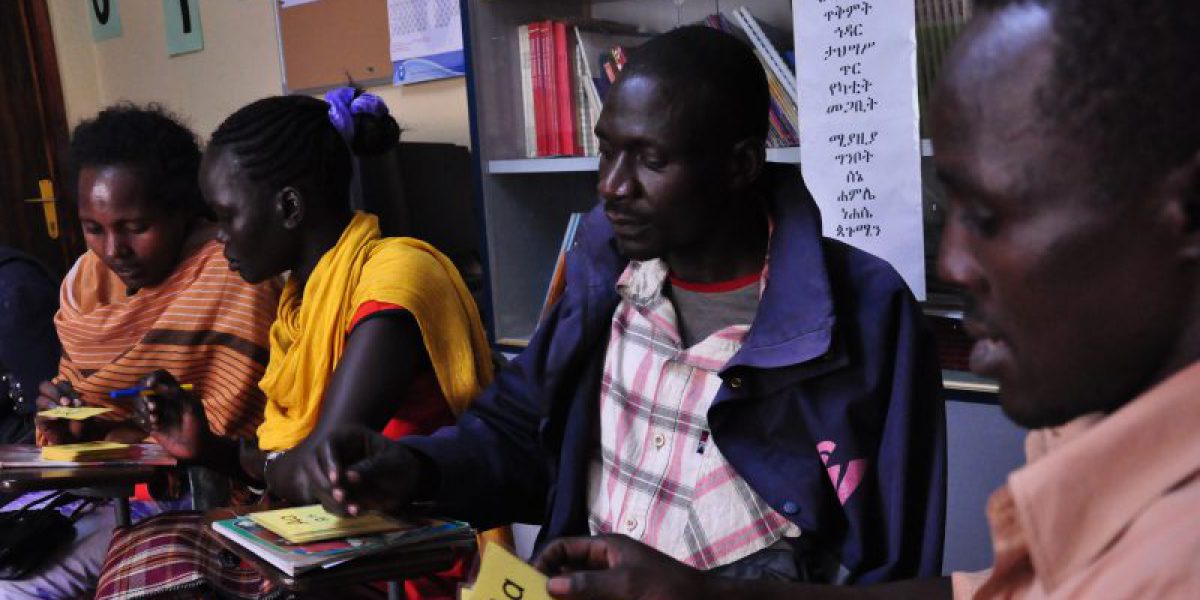Ethiopia: Arriving with Empty Hands
20 June 2010

In 2005, I fled the Democratic Republic of Congo (DRC) with my wife and three children because of the civil war. It took us weeks to arrive at the Ethiopian border after having crossed Uganda and Kenya. When we finally reached the capital, Addis Ababa, our clothes were tattered and we were weak. We presented our cases and sought asylum.
For the next couple of days we lived on the street, sleeping in the porch of hotels and eating leftovers. Then, one day, a young Ethiopian took us to the police and explained our situation. Some government security officials interviewed us for hours. They finally directed us to JRS, telling us that we would find help there.
At the JRS office a man welcomed us and gave us guidance on how to adjust to the situation in Addis. He told us where we could get help and what kind, how to rent a home and how to use the emergency money given to us.
On that same day, we purchased a room near the JRS run Refugee Community Centre (RCC). The next morning, we sent our children to the RCC daycare center where they found playmates from many different countries. After one week, we were granted urban refugee status which allowed us to enroll for the UN refugee agency’s (UNHCR) urban program through, which we now receive a monthly subsistence allowance as well as medical care and financial support in paying school fees for our children.
At the RCC we met refugees from DRC, Sudan, Somalia, Djibouti ,and Burundi. It was consoling to hear people speak in our mother tongue after a long time. I liked the fact that people of different cultures and languages gathered here to chat, to take part in sports activities, to learn languages, to sing or play music together, to use the internet, or watch movies. We all shared the same pain of being forcefully displaced.
I discovered that the RCC offers a broad range of activities. I joined a band who sang in my own language and I found the music therapeutic. It motivated me to learn how to play the guitar. This was the first course I attended at the RCC and it taught me to endure. I soon registered for computer and English courses and received certificates for both.
Recently, I was among the few graduates from a vocational skills training program organised by JRS. Since I like taking pictures I chose videography as a subject. After my graduation, I used my old manual camera to start a small photo business that already generates some money and helps me support my family. As a reward for my perseverance, JRS allowed me to refurbish a video and audio gallery to display the daily activities of the project.
Now, things are better. We often spend time at the RCC and our children are so happy there, it’s really is a place for change. I came with empty hands, but now I am equipped with skills that help me win bread for my family. I know how to use a computer, write a letter, browse the internet, or speak in English. For me, the RCC is an evidence for the fact that people really care for one another and that they ease pain and anguish through accompaniment and service.



